DWFI welcomes new Global Fellow and six new Faculty Fellows
New Global Fellow
DWFI Global Fellows are faculty members and researchers external to the University of Nebraska who provide significant and sustained contributions to the Institute’s global research, scholarship, engagement and education programs. Global Fellows substantively and geographically complement the institute’s leadership and Faculty Fellows’ areas of expertise, thereby expanding the Institute’s capacity to implement projects internationally. Appointments are non-salaried.
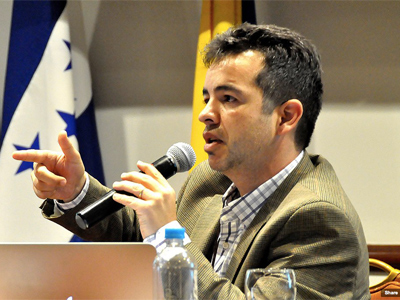
Paulo de Tarso, Ph.D., director of the Environmental Law Clinic at the Federal University of Paraná and past DWFI visiting professor, is DWFI's newest Global Fellow.
Tarso’s teaching and research interests are environmental law, water-use law, water tenure, and natural resources law. Prior to joining Universidade Federal do Paraná (UFPR) in 2003, he worked as an expert in biodiversity monitoring and natural resources conservation in the Water and Earth Agency of Paraná State. He is the Director of the Environmental Law Clinic at UFPR, which examines the environmental, regulatory, and economic implications of water conservation in Paraná State and elsewhere. He is also Consultant to the Inter-American Development Bank for the Probabilistic study of the impact of droughts on the growth and yield of crops in Brazil, teamed with the Drought Information System for southern South America (SISSA), to support policy and plans to increase drought resilience. For the next year, his main goal will be to develop research about water tenure in Brazil.
New Faculty Fellows
DWFI Faculty Fellows are faculty within the University of Nebraska system who contribute to the institute’s research, scholarship, engagement and education programs. Faculty Fellow status gives formal recognition of an individual’s accomplishments and expertise and includes the Fellow in a community of faculty with complementary interests. DWFI's Faculty Fellow pool has become increasingly competitive and six new Fellows accepted DWFI's invitation to become a Faculty Fellow, bringing the total to 128.
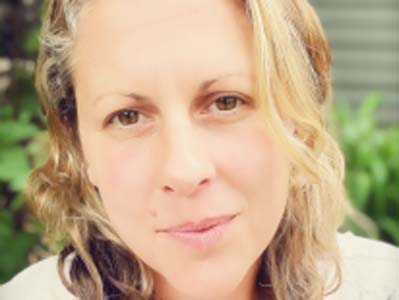
Georgina Bingham, Ph.D. is research associate professor in the UNL Department of Entomology. Bingham has more than 20 years’ experience working in developing regions including sub-Saharan Africa and Southeast Asia and holds qualifications for project management and good clinical practice. Her research focuses on entomological impacts on food security and nutrition, and insects of medical and veterinary importance.
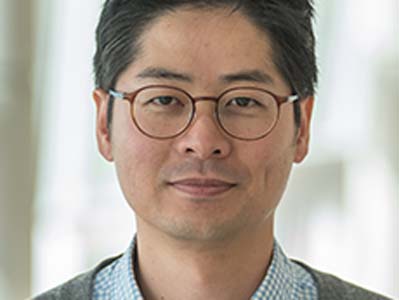
Yeongjin Gwon, Ph.D. is assistant professor in the Department of Biostatistics at the University of Nebraska Medical Center. Gwon has a research interest in Bayesian statistical methodology, Bayesian computation, network meta analysis, latent class modeling, high-dimensional data, longitudinal data and survival data analysis.
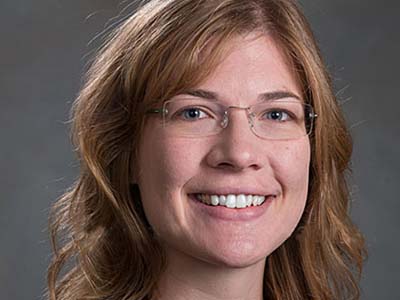
Jennifer Keshwani, Ph.D. is associate professor in UNL’s Department of Biological Systems Engineering. Keshwani is also the Science Literacy Specialist through Nebraska Extension. Working with learners from elementary school to college students to professional educators, Keshwani gets to help learners of all ages through her teaching and extension. She teaches an undergraduate course in engineering properties and advises undergraduate and graduate students. Her main focus, however, is promoting science and engineering education in both formal and informal settings through her research and extension activities.
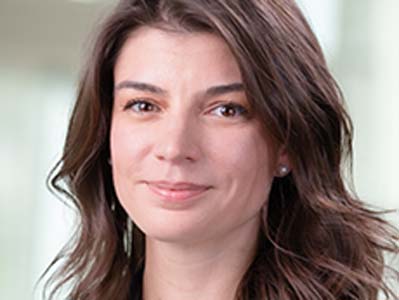
Rachel Lookadoo, JD is assistant professor at the College of Public Health at UNMC. Lookado is also Director of Legal and Public Health Preparedness, Center for Preparedness Education. Her research interests include public health law; disaster preparedness; isolation and quarantine; as well as climate, extreme weather, and climate change.
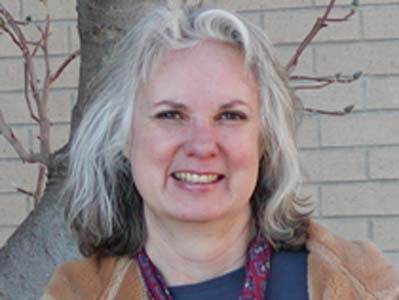
Martha Rhoades is research manager at UNL’s School of Natural Resources. Rhoades areas of expertise include environmental toxicology, drinking water and public health.
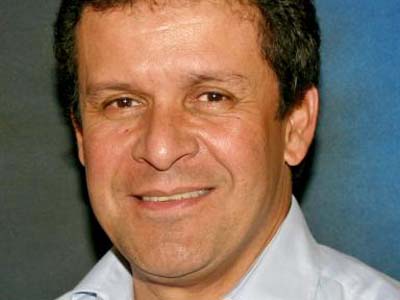
Carlos Urrea, Ph.D., is associate professor in the UNL Department of Agronomy and Horticulture. Urrea has expertise in breeding dry bean varieties to select plants that are resistant to rust, white mold, common bacterial blight, and root rots, as well as those that have desirable qualities related to water efficiency and minimum tillage systems and that have a more upright architecture, allowing direct harvesting.
FY 2022 Annual Report
- Overview
- Letter from the Executive Director
-
Research and Policy
-
Nebraska + Regional
- DWFI offers suite of tools to improve irrigation water use and agricultural productivity
- Understanding groundwater markets and transfers in Nebraska
- Water management for improving water use, sustainability
- Research looks to control nitrate leaching, protect Nebraska groundwater
- DWFI researching solutions, fostering communication regarding AltEn environmental crisis in Mead, Nebraska
- Nitrate Strategy Groups release calls for action
- Mapping geographic heat inequities in urban areas
-
Global + National
- New report explores the business ecosystem for smallholder irrigation in Rwanda
- Visit to Nebraska results in water management partnership with Brazil
- New study shows economic impact of the irrigation equipment and services industry
- DWFI and Mammoth Water launch report of water market readiness
- USDA partnering with Nebraska Water Center to enhance modeling system
- Faculty Fellows
-
Supported Students
- Water for Food Research Forum showcases exciting student work
- DWFI welcomes new round of student support recipients
- Student's fertigation startup awarded first Husker Venture Fund investment
- Four DWFI supported students receive doctoral degrees
- Nebraska researchers are following the water
- Heeren Inspires Students through Irrigation Field Course
-
Nebraska + Regional
-
Communication, Education + Outreach
- DWFI reconnects with international partners and projects
- Nebraska Water Center seminars focus on hydro-tourism, economic development in Nebraska
- Nebraska Water Center conference held in Scottsbluff
- Virtual forum broadens institute’s reach
- Aquifer recharge project in Nebraska featured in international publication
- Digital growth: Water for Food Podcast and online engagement
- Development
-
Photo essays
- DWFI discusses water management with delegation from Kenya
- DWFI and Nebraska Water Center engage with attendees at UNL East Campus Discovery Days
- DWFI and Nebraska Water Center participate in UNL Sustainability Kickoff event
- DWFI hosts students Faculty Fellow for fall welcome event
- DWFI sponsors annual Earthstock event on University of Nebraska Lincoln campus
- Resources
- Search
FY 2022 Annual Report
- Overview
- Letter from the Executive Director
-
Research and Policy
-
Nebraska + Regional
- DWFI offers suite of tools to improve irrigation water use and agricultural productivity
- Understanding groundwater markets and transfers in Nebraska
- Water management for improving water use, sustainability
- Research looks to control nitrate leaching, protect Nebraska groundwater
- DWFI researching solutions, fostering communication regarding AltEn environmental crisis in Mead, Nebraska
- Nitrate Strategy Groups release calls for action
- Mapping geographic heat inequities in urban areas
-
Global + National
- New report explores the business ecosystem for smallholder irrigation in Rwanda
- Visit to Nebraska results in water management partnership with Brazil
- New study shows economic impact of the irrigation equipment and services industry
- DWFI and Mammoth Water launch report of water market readiness
- USDA partnering with Nebraska Water Center to enhance modeling system
- Faculty Fellows
-
Supported Students
- Water for Food Research Forum showcases exciting student work
- DWFI welcomes new round of student support recipients
- Student's fertigation startup awarded first Husker Venture Fund investment
- Four DWFI supported students receive doctoral degrees
- Nebraska researchers are following the water
- Heeren Inspires Students through Irrigation Field Course
-
Nebraska + Regional
-
Communication, Education + Outreach
- DWFI reconnects with international partners and projects
- Nebraska Water Center seminars focus on hydro-tourism, economic development in Nebraska
- Nebraska Water Center conference held in Scottsbluff
- Virtual forum broadens institute’s reach
- Aquifer recharge project in Nebraska featured in international publication
- Digital growth: Water for Food Podcast and online engagement
- Development
-
Photo essays
- DWFI discusses water management with delegation from Kenya
- DWFI and Nebraska Water Center engage with attendees at UNL East Campus Discovery Days
- DWFI and Nebraska Water Center participate in UNL Sustainability Kickoff event
- DWFI hosts students Faculty Fellow for fall welcome event
- DWFI sponsors annual Earthstock event on University of Nebraska Lincoln campus
- Resources
- Search
Related Articles
DWFI research outputs now available on Research Nebraska website
DWFI recently worked with University colleagues to populate a comprehensive list of research outputs produced by the institute, its staff and Faculty Fellows.
Creating a viable alternative to agricultural plastics
DWFI Faculty Fellow Karina Schoengold is leading a $6 million, 4-year project to reduce the use of plastics, herbicides and associated environmental impacts in agricultural production.
Nebraska researchers are following the water
Graduate student Caner Zeyrek and his advisor, Troy Gilmore, are learning a lot about Nebraska’s water flows.
Related News Articles
DWFI research outputs now available on Research Nebraska website
DWFI recently worked with University colleagues to populate a comprehensive list of research outputs produced by the institute, its staff and Faculty Fellows.
Creating a viable alternative to agricultural plastics
DWFI Faculty Fellow Karina Schoengold is leading a $6 million, 4-year project to reduce the use of plastics, herbicides and associated environmental impacts in agricultural production.
Nebraska researchers are following the water
Graduate student Caner Zeyrek and his advisor, Troy Gilmore, are learning a lot about Nebraska’s water flows.
COOKIE USAGE:
The University of Nebraska System uses cookies to give you the best online experience. By clicking "I Agree" and/or continuing to use this website without adjusting your browser settings, you accept the use of cookies.

